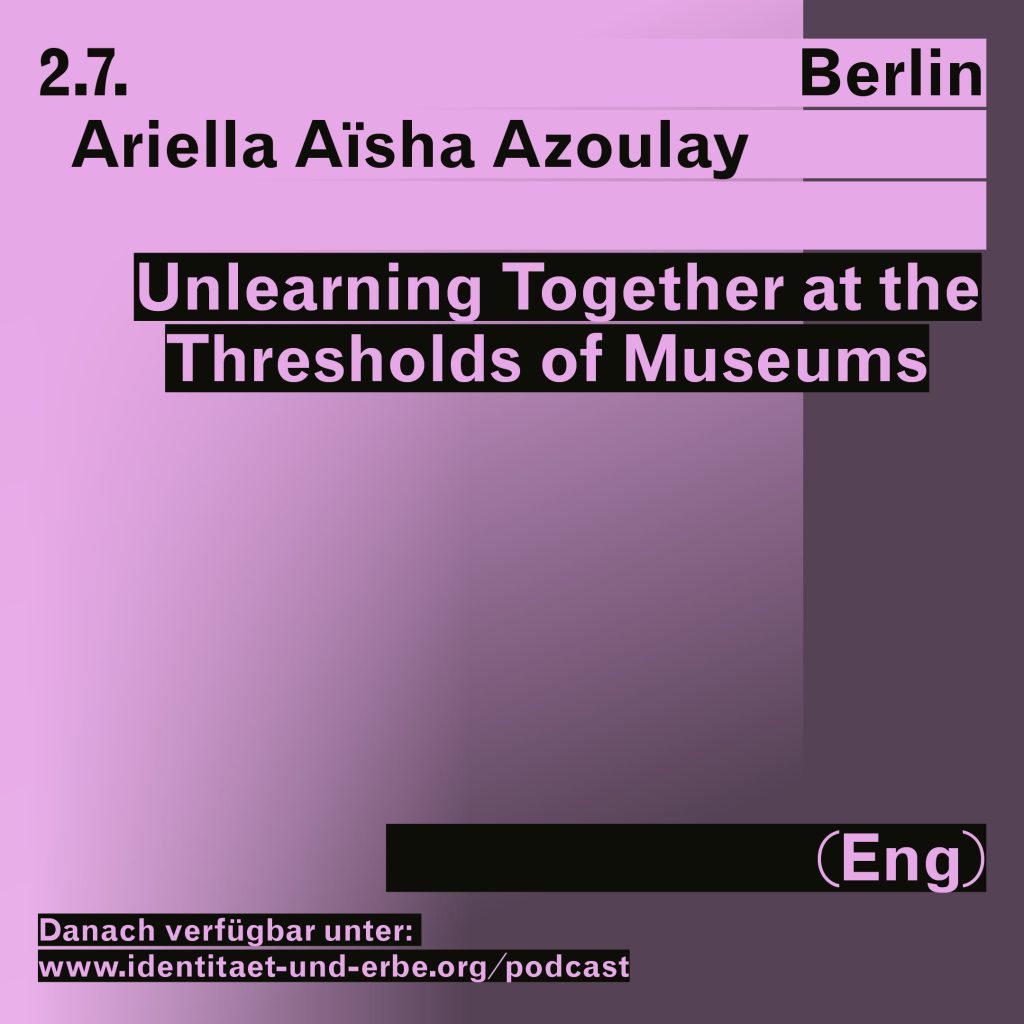Ariella Aïsha Azoulay: Unlearning Together at the Thresholds of Museums (ENG)
Weitere Informationen zum Vortrag folgen in Kürze.
Ariella Aïsha Azoulay ist Wissenschaftlerin, Autorin, Kuratorin und Filmemacherin. Sie hat die Professur für Modern Culture and Media (Department of Comparative Literature, Brown University) inne. Sie forscht zur Theorie der Fotografie und der visuellen Kultur.
Zu ihren Veröffentlichungen zählen: Potential History – Unlearning Imperialism (Verso, 2019); Civil Imagination: The Political Ontology of Photography (Verso, 2012); The Civil Contract of Photography (Zone Books, 2008); Aïm Deüelle Lüski and Horizontal Photography, Leuven University Press and Cornell University Press, 2013; From Palestine to Israel: A Photographic Record of Destruction and State Formation, 1947-1950, (Pluto Press, 2011); co-author with Adi Ophir. The One State Condition: Occupation and Democracy between the Sea and the River. Stanford University Press, 2012.
Filmische Essays (Auswahl): Un-documented: Undoing Imperial Plunder (2019); Civil Alliances, Palestine, 47-48 (2012); I Also Dwell Among Your Own People: Conversations with Azmi Bishara (2004) & The Food Chain (2004).
Zahlreiche Ausstellungsbeteiligungen (Auswahl): The Natural History of Rape (Berlin Binnale, 2022), Errata (Tapiès Foundation, 2019, HKW, Berlin, 2020), Enough! The Natural Violence of New World Order, (F/Stop photography festival, Leipzig, 2016), Act of State 1967-2007, (Centre Pompidou, 2016, Arquivo Municipal de Lisboa Fotografico, 2020); Enough! The Natural Violence of the New World Order (F/Stop festival, Leipzig, 2016); „The Natural History of Rape“ (Pembroke Hall, Brown University, 2015); The Body Politic [in Really Useful Knowledge, curated by What, How & for Whom / WHW], Reina Sofia, Madrid; When The Body Politic Ceases To Be An Idea, Exhibition Room – Manifesta Journal Around Curatorial Practices No 16 Potential History (2012, Stuk / Artefact, Louven), Untaken Photographs (2010, Igor Zabel Award, The Moderna galerija, Lubliana; Zochrot, Tel Aviv), Architecture of Destruction (Zochrot, Tel Aviv), Everything Could Be Seen (Um El Fahem Gallery of Art).
